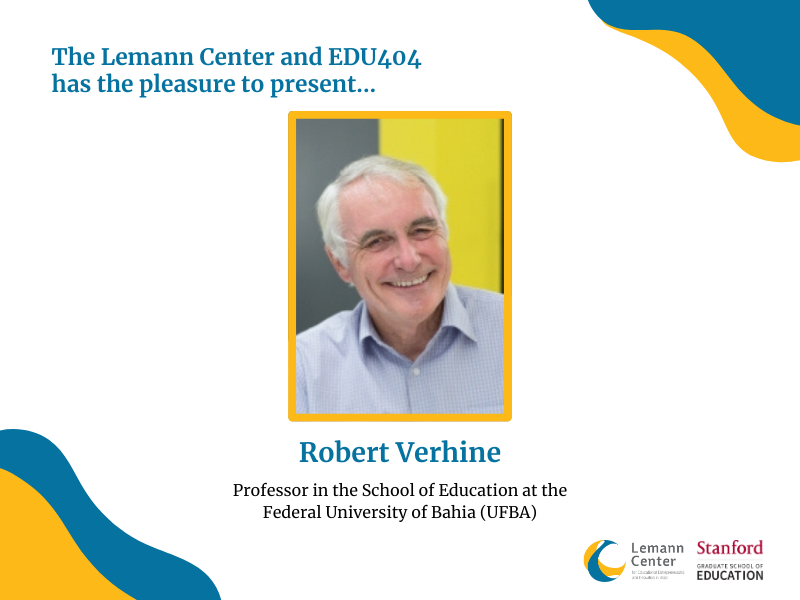Online Graduate Programs in Brazil: Policy Implications Derived from an International and Comparative Perspective
Online Graduate Programs in Brazil
Policy Implications Derived from an International and Comparative Perspective
Date:
Tuesday, March 5, 2024 - 9:00am to 10:15am
At the end of 2023, that first online graduate program in Brazil was approved by CAPES. The possibility of such a program has existed since 2019 and more than 30 proposals have been submitted since that time, but the maiden approval has come slowly because of concerns about of the quality of the online modality which, in great part, are derived from Brazil’s unfavorable experience with distance education on the undergraduate level. On other hand, the use of the distance approach on the graduate level would appear to be especially relevant for the Brazilian reality, due to limited access to existing, in-person offerings, which tend to be concentrated in major urban areas and are often inadequate in responding to the diverse work-related and family obligations of potential students. Also, online graduate programs are commonplace in many regions of the world, being especially prevalent in the United States. The presenter has coordinated two workgroups (GTs) created by CAPES to study the graduate-level distance education from conceptual and operational standpoints and to provide suggestions for its effective implementation. He has also conducted an in-depth study of online master and doctoral programs in the US, involving interviews with representatives from several major American universities. His talk, based on these investigations, will analyze the graduate-level distance approach and make policy recommendations for promoting the modality’s success within the Brazilian context, based on a comparative perspective that considers both Brazil’s undergraduate online experience and examples drawn from online graduate-degree offerings in the United States.
About Robert Verhine
Robert (Bob) Verhine is Full Professor of Education at the Federal University of Bahia and Senior Fellow of the Leman Center at Stanford. He was twice Vice-Provost (Pró-Reitor) for research and graduate programs at UFBA and was twice the CAPES Coordinator for the Area of Education, participating on the agency’s Scientific-Technical Board (CTC) and chairing its work groups (GTs) devoted to distance education and to program self-evaluation. Also, in addition to other activities, Verhine served as the Scientific Director of Bahia’s Foundation for Research Support (FAPESB) and as the President of the National Commission for Higher Education Evaluation (CONAES). His research and writing have focused on educational policy, educational evaluation, and comparative and international education. Born in California and raised in Palo Alto, Verhine has lived in Brazil on a permanent basis since 1977.


